Conversation redesign
The aim of the redesign was to streamline Intuo's conversation system, facilitating the exchange of feedback, enhancing communication around talking points, and making conversations more engaging.
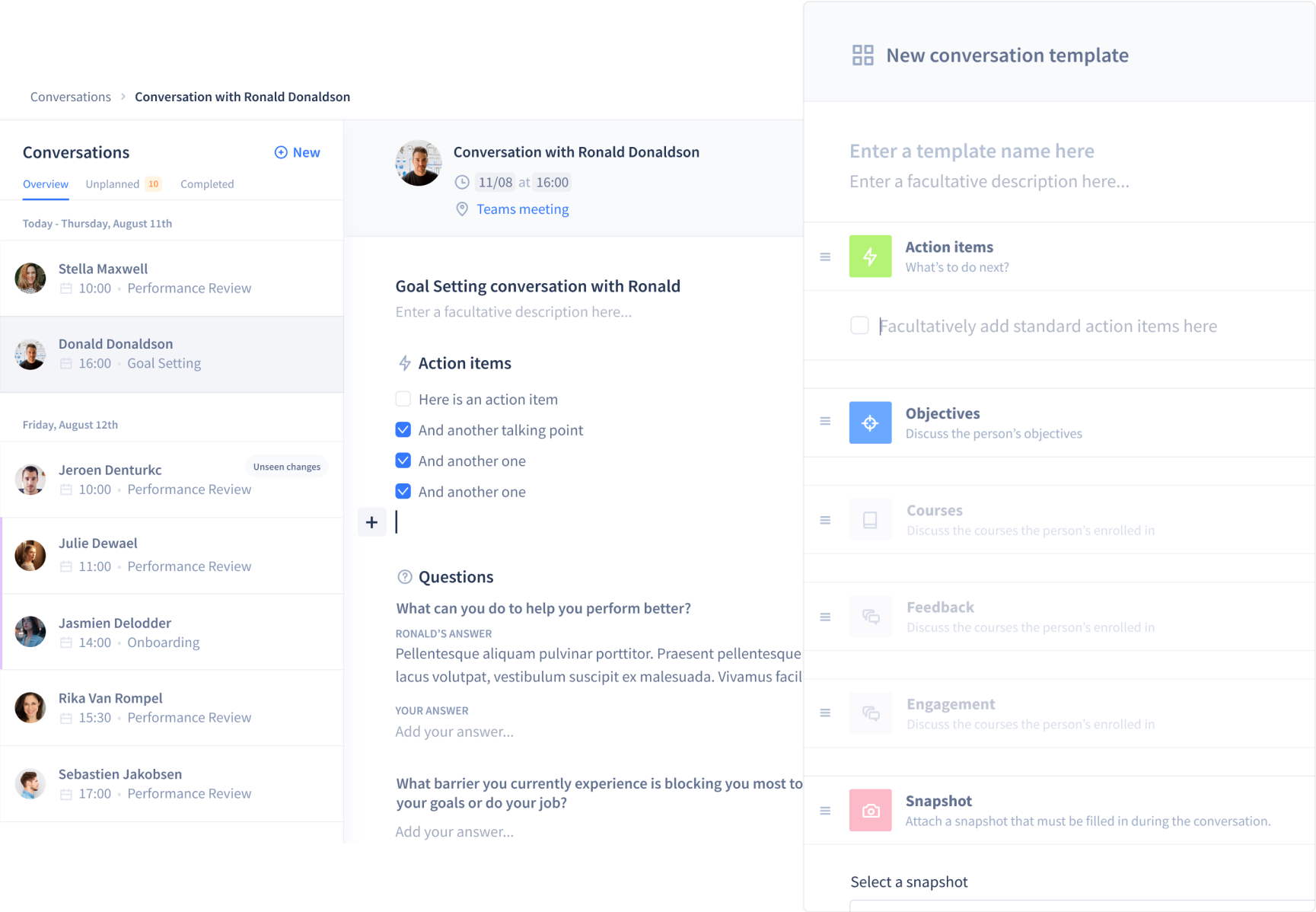
About
Project for Intuo where I worked as a Product Designer between Jul 2019 and Mar 2021. I worked on this project between Oct 2020 - Mar 2021.
My responsibilities
UX & UI design
Prototyping & testing
Visual Design
Tools
Overflow (userflows)
Maze (user testing)
Figma
Overview
Intuo is a talent enablement platform. It connects insights from all aspects of an employee journey. From measuring engagement, and facilitating one-on-one conversations, to tracking objectives and providing employees with an easy to use learning system that will drive development.
Problem Statement
Together with the team and after doing some initial research (analysing product usage data, conducting user interviews, ...), we identified 3 major problems with 1-1 conversations.
Employees don't always know what to talk about
Preparation is crucial and will avoid wasting time on getting a sense of the topics that will be covered.
One-on-meetings used to be felt as a bad idea
We discovered that one of the main reasons of that is that 1-1 meetings were not always well designed. The key is to make sure that it's a meeting for the employee, rather than a manager’s meeting.
Previous conversations are not always documented
This way, it's difficult to follow-up on action items and provide accountability.
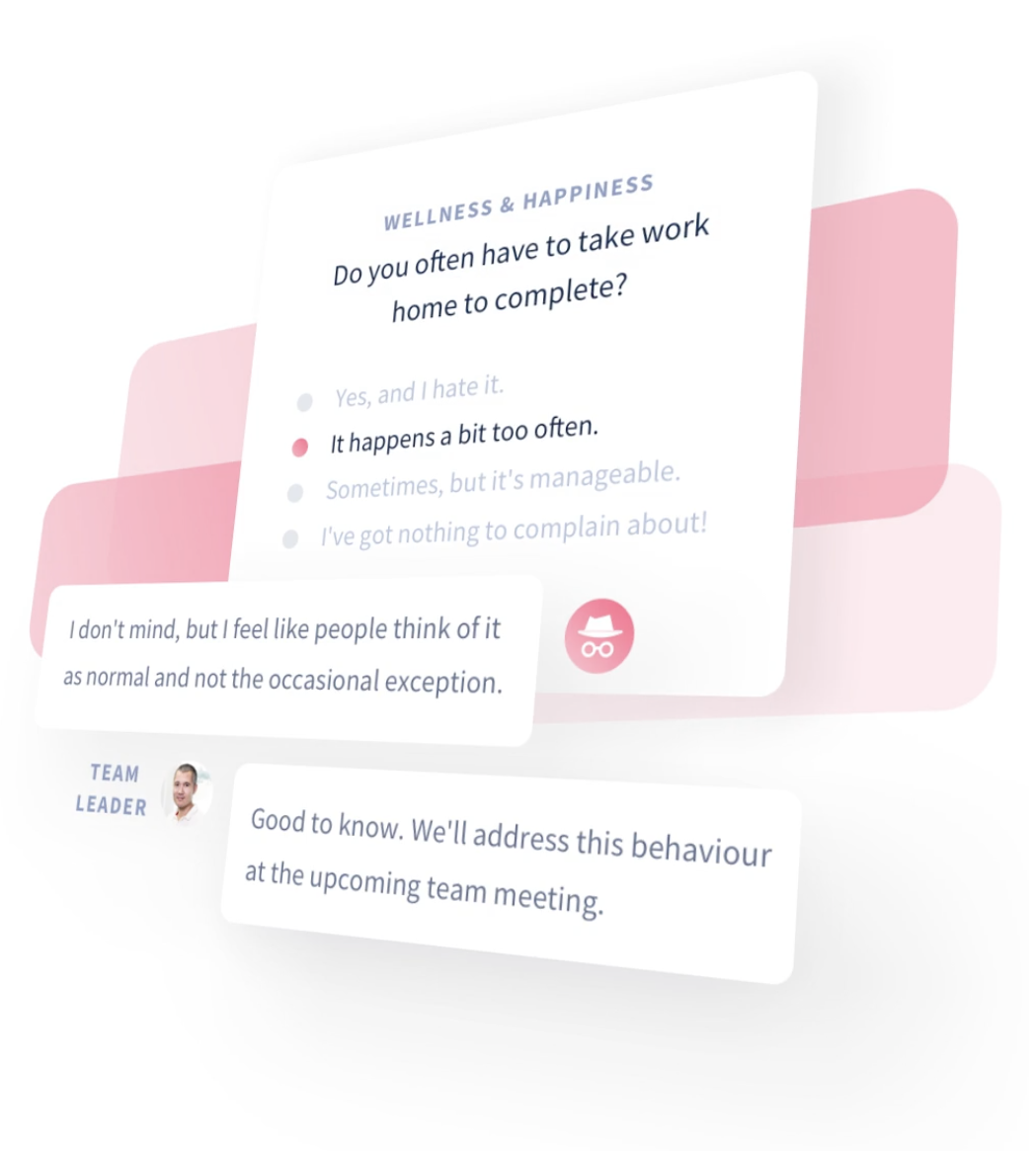
Intuo had already developed a conversation system that tried to solve those problems, however, with their previous solutions, we discovered some other problems:
Users had no clear overview of upcoming conversations
Users found it difficult to follow-up on action items and to find topics to talk about
Users couldn't intuitively find a way to create a new conversation & plan an existing one
The conversational flow felt too staged and complicated
Process
Here's a brief overview of the process I followed & methodologies I've used in order to tackle the problem.
Competitor Analysis
After the problem was identified and validated, the first step was to analyse how competitors tried to solve the same problems. This helped to better understand the landscape of solutions in order to gain strategic insights. What are their differentiator, strengths & weaknesses?
I presented those findings to the stakeholders and the project team. After analysing the competitors, together with the team we generated ideas.
User flows & wireframing
Keeping the user motivations and needs in mind, I defined a basic structure and flow to provide a visual understanding of the possible solutions on how conversations could be created.
I also designed the user flow in order to communicate the user journey in clear diagrams. The flow demonstrated the path the user had to take to create a new conversation and conduct a conversation.
High-fidelity prototyping
Using Intuo's design system, I made high-fidelity prototypes of the whole flow in Figma, based on the approved wireframes and user flows.
The whole flow was designed and transformed into an interactive Figma prototype. Once done, we could finally start testing the flow with our users and iterate.
User Testing
As Covid appeared, we took the opportunity to use Maze to test the conversation prototype.
I defined tasks for our testers to complete (for example: "Create a new conversation"). This in order to learn what actions users perform and if they can easily complete the tasks . Based on the results, new iterations were done to suit the user's needs.
I also asked some follow-up questions like "How easy was the creation of conversation?", "Would you still use conversations if this update was available tomorrow?", "How would you like to plan a new conversation?", "Any feedback?"...
Design handoff
In order for a handoff to be successful, we organised a meeting with the engineering team in order to present the redesign . It is also worth mentioning that an engineer was part of the team at the start of the design process, in order to check the feasibility, gather insights and to make the handoff more successful.
All the necessary design files and assets were shared in the design specs I wrote in Notion.
A weekly follow-up on the progress was also planned and questions could be asked in a public Slack channel in order to communicate transparently.
Launch
We opted for a gradual launch of the redesign and thoroughly tested it before releasing it progressively to the entire user base.
Keeping the business goals in mind, we defined quantifiable goals to measure succes:
20% increase of conversation usage
80% user satisfaction with the refined flow
Solution
A conversation can be created in 3 simple steps: select a template, select employees with whom you want to have a conversation with and plan your conversation
Some conversations can be pushed by HR
You can select predefined and customised templates (for example: onboarding conversation, goal setting conversation, ...) ar create a blank one. Templates cover the employees' objectives, action items, feedback history, learning evolution, engagement ...
A teamleader can plan individual conversations for the whole team directly
Conversations can be directly planned by teamleaders or the employee can plan it in predefined time-slots
Not in MVP: Smart suggestions for teamleaders and employees: show people you haven't had a conversation with since x months, show people with a negative sentiment in your team, show suggested topics for your conversations, ...
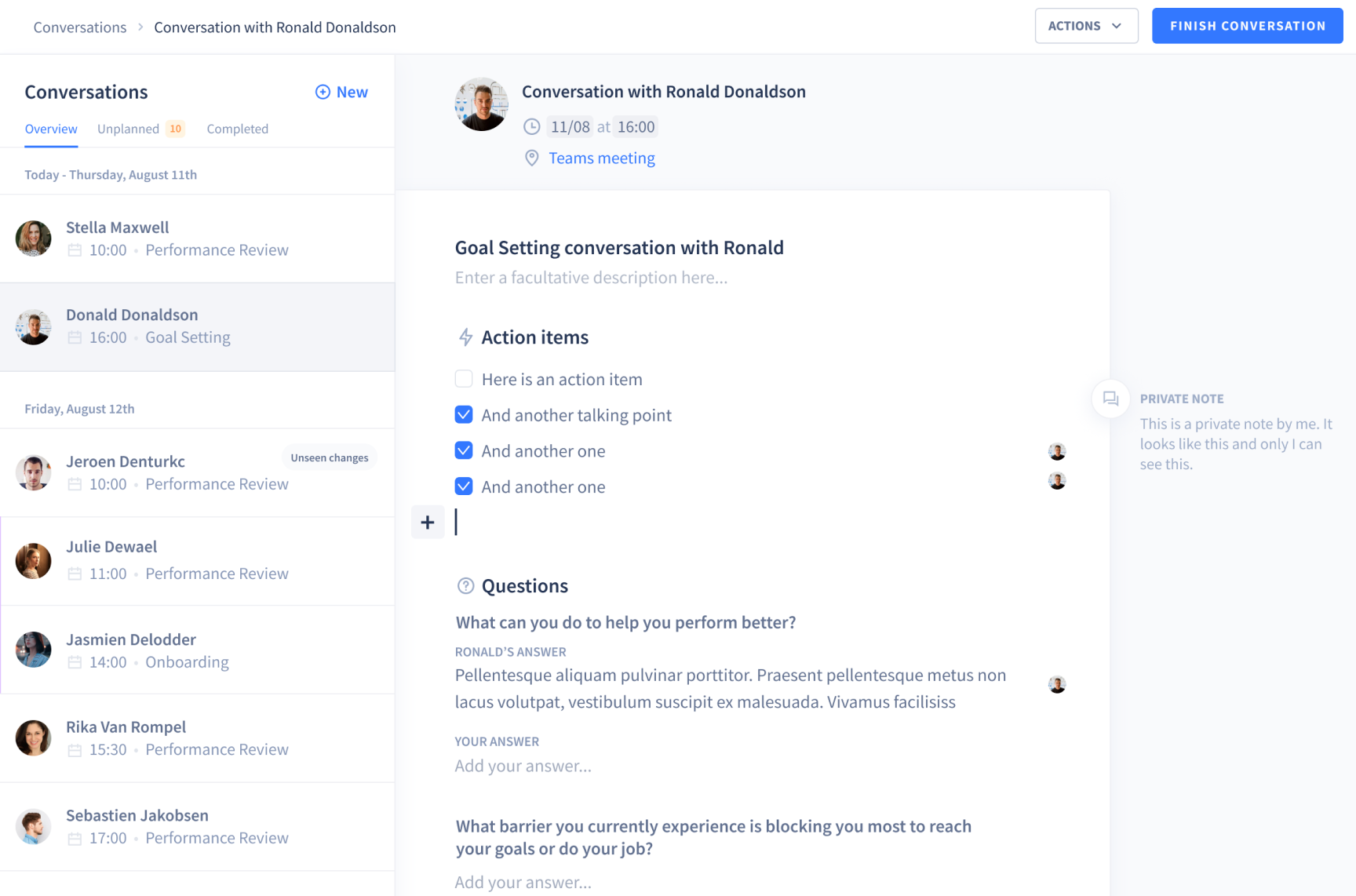
The conversation detail page, with action items & questions.
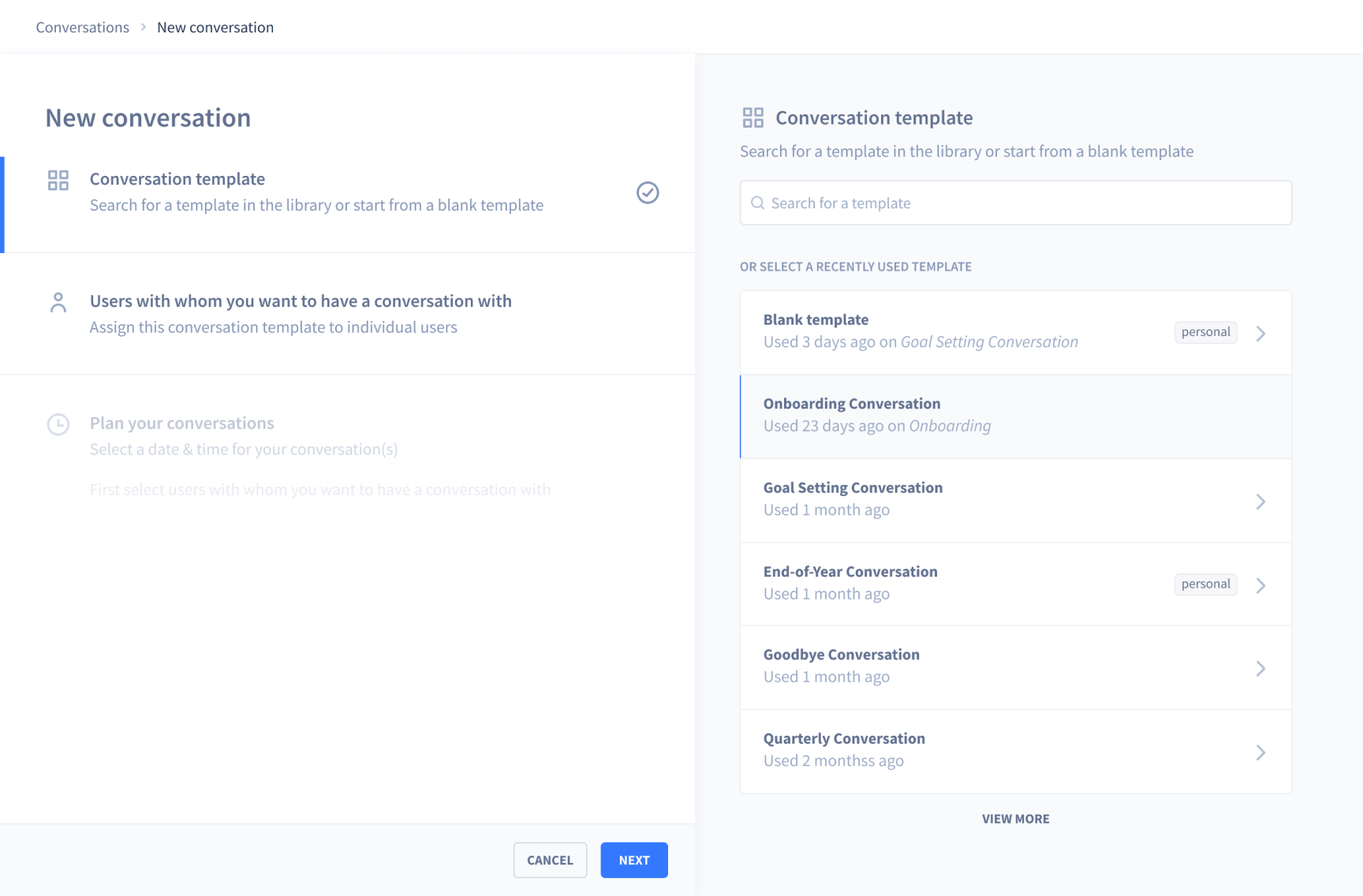
Create a conversation in 3 simple steps.
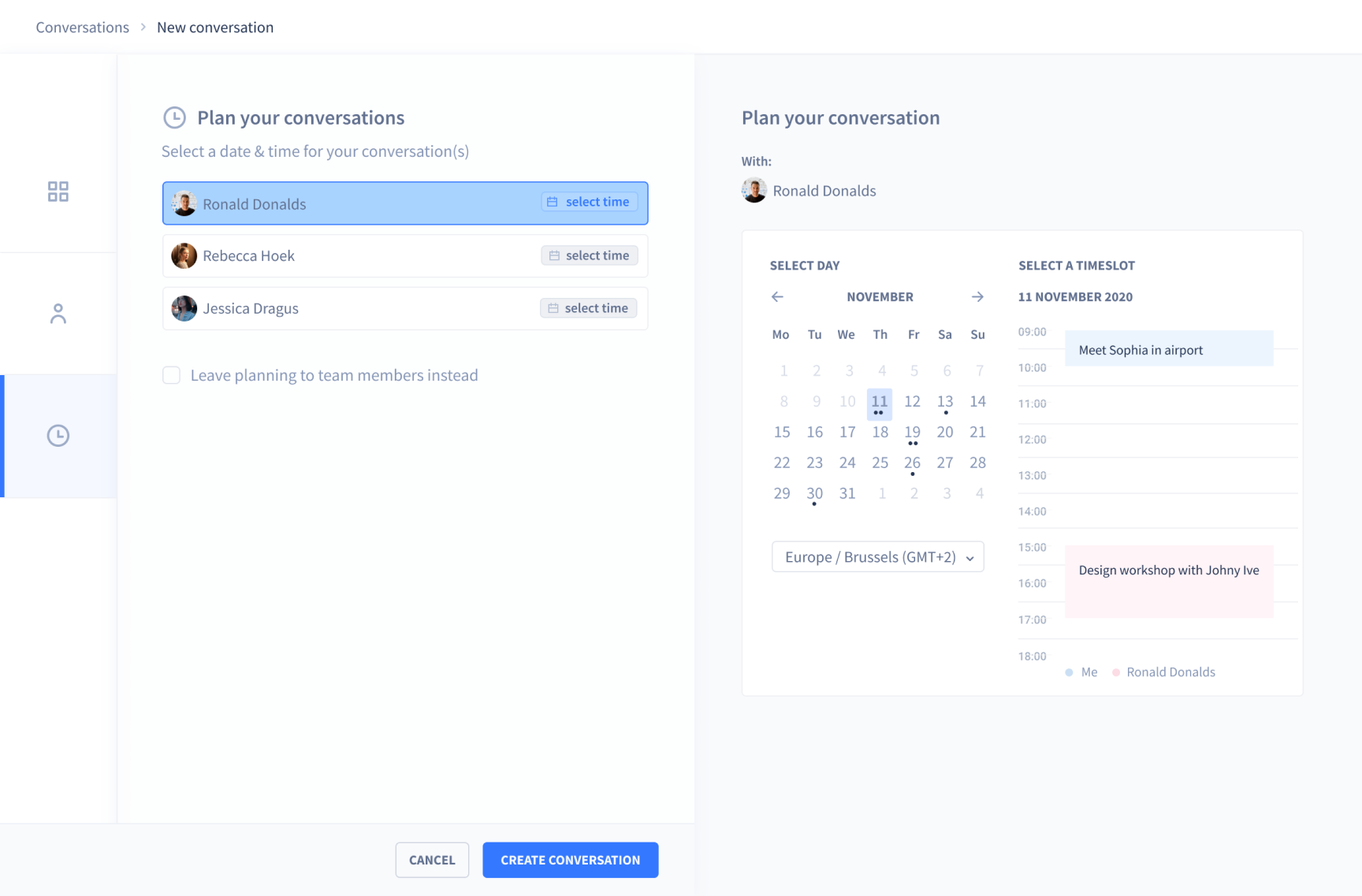
Plan a conversation directly and check the employer's availability.
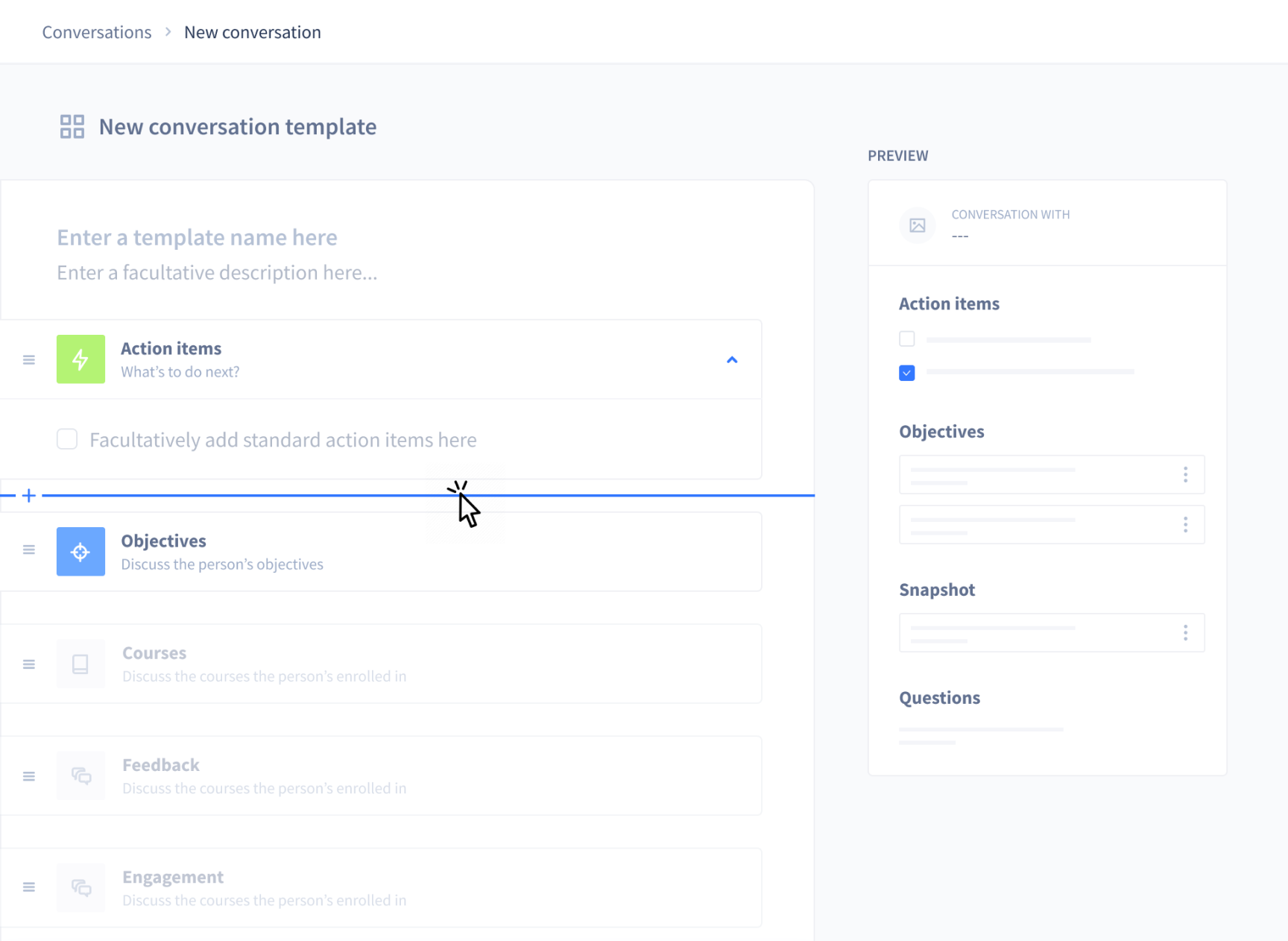
Create a conversation template, where you can define what the conversations using that template should include.
Check out another project
Optimising employee training to help them grow
The goal of that project was to redesign Intuo's employee training platform.